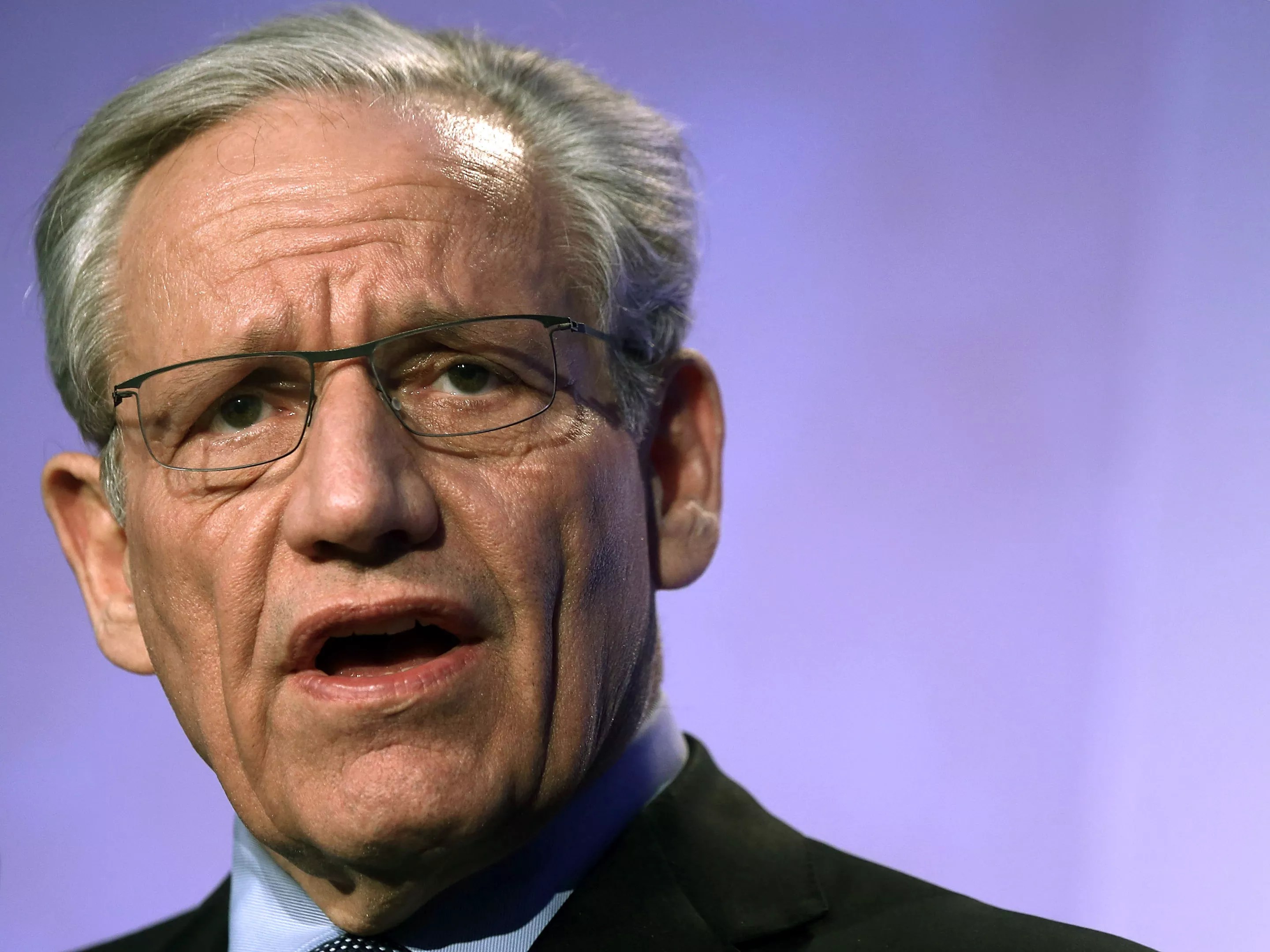
Alex Wong/Getty

Audio By Carbonatix
Celebrated journalist Bob Woodward told an audience at the University of Texas at Arlington last week what the Rolling Stones knew all along: Time is on our side.
While reflecting on his reporting of Watergate, Woodward, an associate editor at The Washington Post, shared that the first real lesson to be taken away from the national scandal is “the centrality of truth” in America. However, he stressed that time provides a much clearer picture of what is actually certain.
Woodward and Carl Bernstein’s coverage during Richard Nixon’s presidency happened during a pivotal point in history.
During the Maverick Speaker Series presentation: The State of the American Presidency, Woodward referred to President Donald Trump’s numerous statements and tweets, many of which he calls “documented untruths.”
“In 2019, how can we get a useful, political dialogue with citizen understanding, or even journalism, when we have destroyed the common agreement about what is a fact?” he asked. “How do we function if we can’t figure out what is true or come close to or have a process that will try to get us there?”
Woodward’s questions seemed to mirror the reasons Pauline Hudel, an assistant professor at the college, says she attended the event. “As a teacher, I need to rely on accurate information,” she says.
“In 2019, how can we get a useful, political dialogue with citizen understanding, or even journalism, when we have destroyed the common agreement about what is a fact?” — Bob Woodward
Woodward went on to say that Mikhail Gorbachev, former president of the Soviet Union, stated that after the collapse of the USSR, the lies told about the Chernobyl nuclear disaster had begun the unraveling of that country. Watergate’s second lesson, Woodward says, is that presidents have to hold political and moral authority. He also cautioned against the pomposity that stalks the halls of news organizations, politics and businesses, saying that as people rush to explain, in the moment, what’s happening, the luxury of time waits with an advantage.
“Another advantage is silence,” he says. “You’ve got to learn to be quiet.” Despite the weightiness of his political recollections, Woodward also stirred a few ripples of laughter. He talked about the time he’d knocked on a four-star general’s door at 8:17 p.m. on a Tuesday and was greeted with an “are you still doing this shit?”
Woodward also noted former President Bill Clinton’s skill at making unblinking eye contact. Clinton must have convinced himself, Woodward says, that it was important “to contribute every organ in the body, including his eyes,” to the office of presidency.
Woodward, who embodies a distinct poker-faced persona, was more solemn at times. In regard to his latest book Fear: Trump in the White House, he says Trump declared in 2016 that “real power is fear.”
“He uses fear as an instrument,” says Woodward. “Whether we like it, or don’t like it, it is Donald Trump’s America we are living in.”
Hudel says she’d anticipated Woodward to talk about the fear factor he’d written about in his book.
“All my students are diverse,” she continued. “And they’ve just been slammed by this national conversation.”
Woodward seems to view America at somewhat of a politically charged crossroads.
“Can we reform it?” he asks of the culture. “Can we calm it down? Can we listen to the case of the other side?”
Later, when questioned by some of the college’s communication majors, Woodward shared that the painful path of introspection is one that has to be walked alone.
“We all make mistakes,” he says. “We all miss things. We all get things wrong.”
Relaying a conversation he had during the Watergate scandal, Woodward described Bernstein as having the “ability to say what happened truly with the most drama and fewest words.”
“The son of a bitch pardoned the son of a bitch,” Woodward says Bernstein had blurted after calling to inform him that President Gerald Ford had pardoned Nixon.
Woodward recalled his belief, at the time, that the presidential pardon reeked of corruption, and that he would’ve staked his life on that belief. Yet 25 years later, while interviewing Ford in his ranch house office, the former president told Woodward he’d pardoned Nixon because he was looking at the bigger picture of national interest, wanting to get Nixon off the front page and seeking to end the national discussion.
“I needed my own presidency,” Woodward says Ford told him.
Woodward insisted that people don’t know the truth the first time, or the second time, but have to return again and again in search of it and actively work at listening to people.
“I think that’s the skill of journalism,” he said, adding that whatever a person does in life, “human interaction is what matters.”